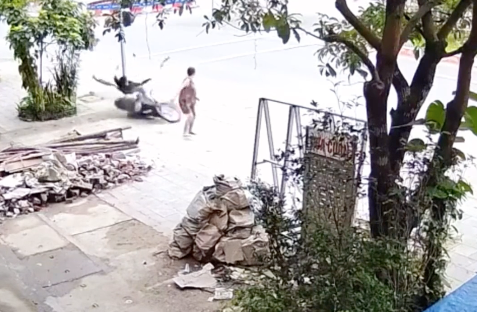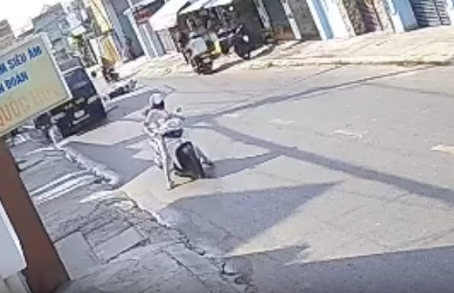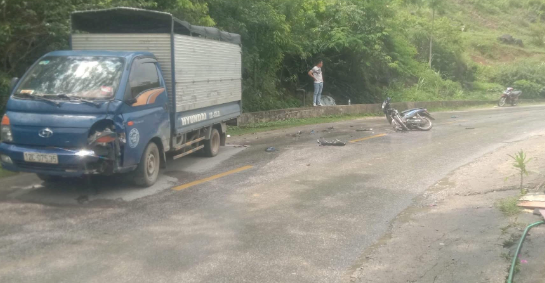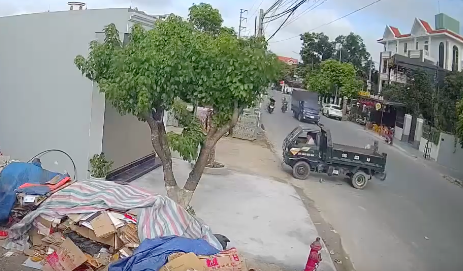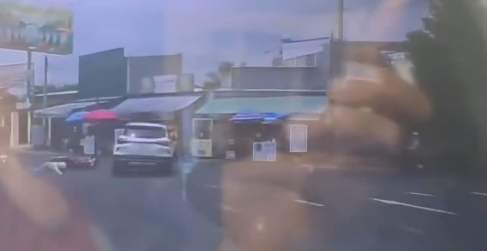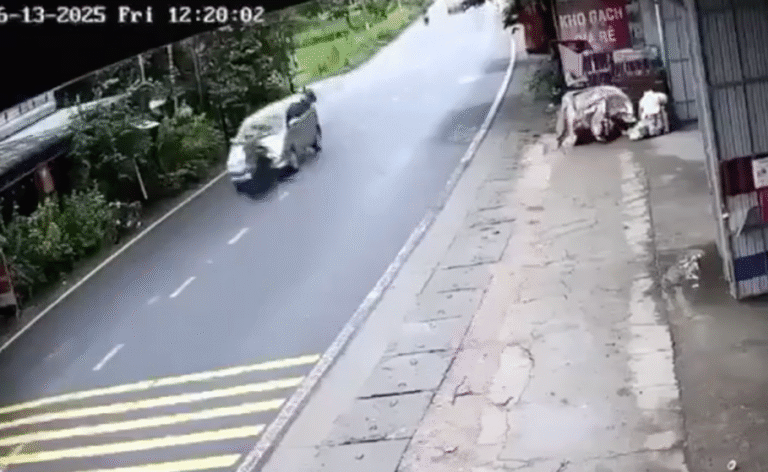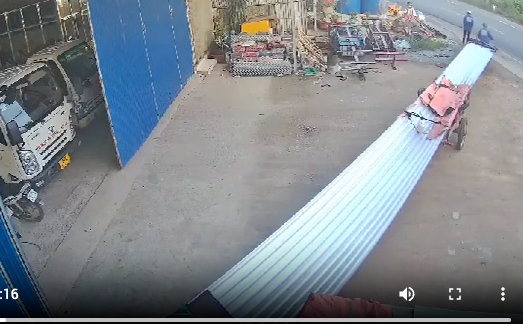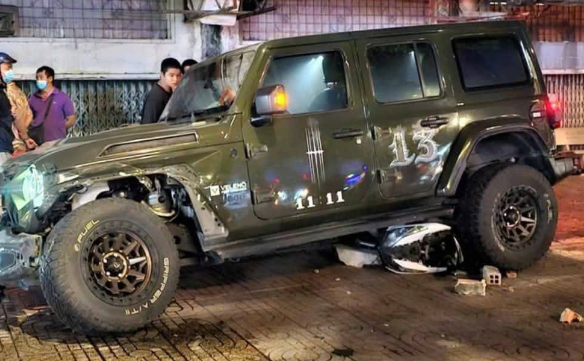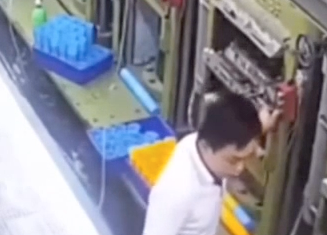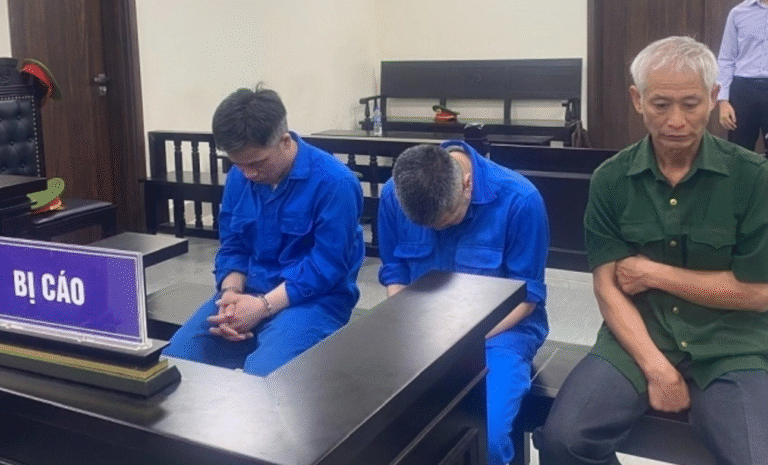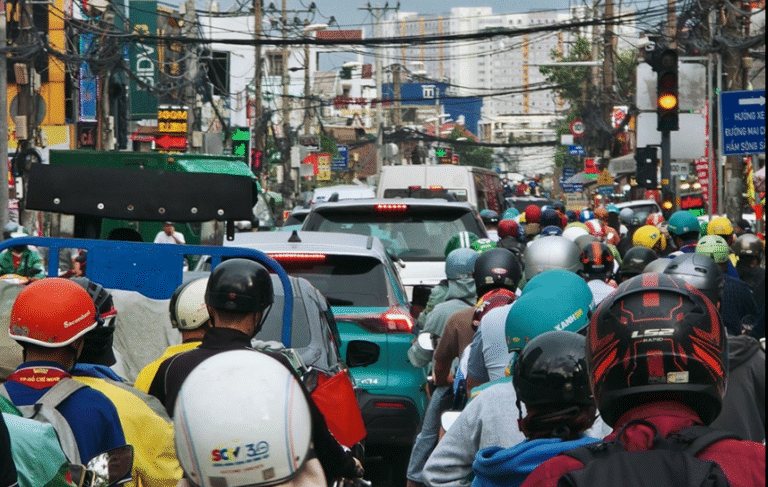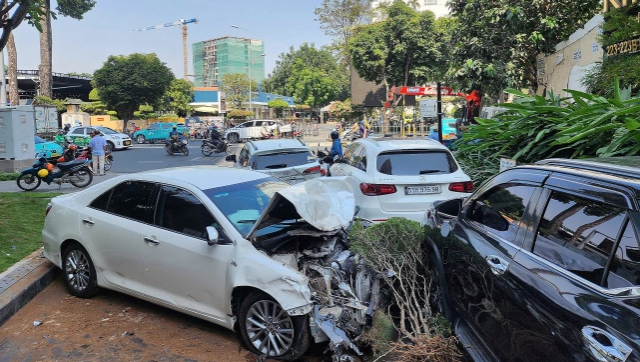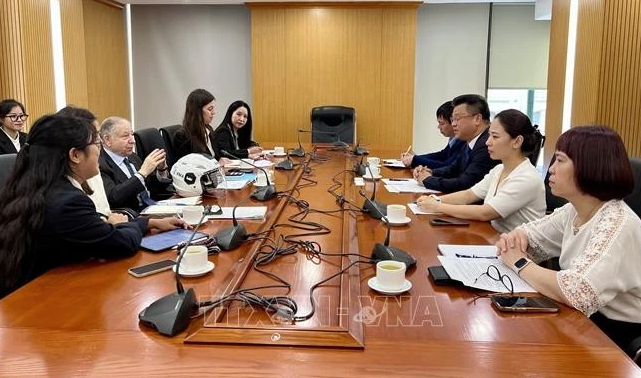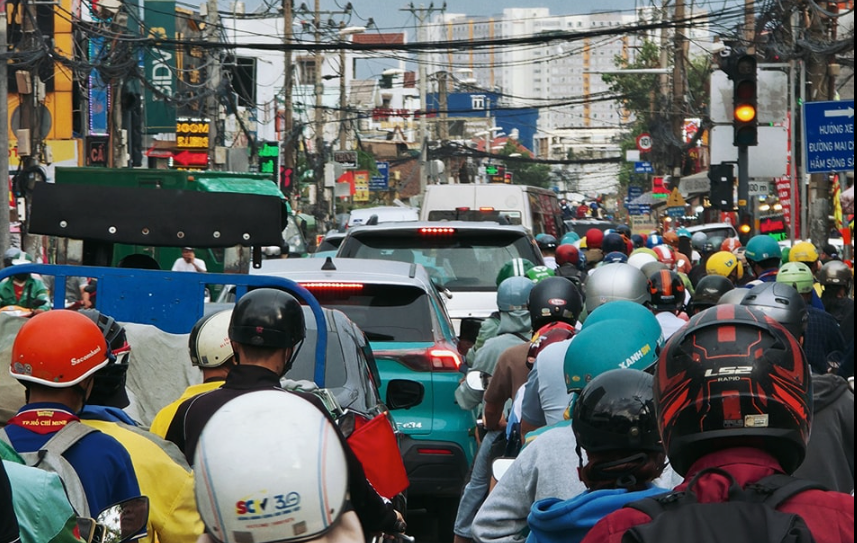
In Vietnam, I’ve been in two accidents caused by intoxicated drivers.
It happened for the first time in May 2019. My rearview mirror was shattered when I was struck by an intoxicated driver.
The inebriated person didn’t even apologize! He simply kept driving erratically, carrying his inebriation with him.
The other occasion was on the second day of Tet in 2015, when I traveled from Hanoi to Ho Chi Minh City. I still get nervous when I think of that time.
A intoxicated man slammed his motorcycle into mine while going sideways onto the highway at a very high speed. In a flip, I went over the handlebars. Time seemed to slow down in the air, and I recalled asking my body to calm down. I hit the road, skidded on my back, and then, oddly, got to my feet with very minor injuries.
The driver attempted to blame me while intoxicated, but the crowd refused to accept it.
After getting my bike restored and pushing it back down the road, I resumed my 11-day trek.
66 individuals lost their lives in traffic accidents on the second day of Tet, according to the newspaper I read when I first arrived in Ho Chi Minh City.
Vietnam’s roads are congested and chaotic. For instance, you frequently notice a bus approaching you as you’re driving along the highway. You will resemble a matador charging at a bull or a knight riding a horse with a lance point charging a monstrous mechanical dragon if you do not immediately leave the path.
I find traffic in Vietnam unsettling for a number of reasons, aside from that complete chaos.
For many years, I was strongly urged to attend the church where my grandfather served as pastor. As I sat in the pew, I would hear him say, “Everything must be done in a proper and orderly manner.”
He drove me to church in a well-organized manner. He claimed that Canada’s well-structured laws and transit system allowed me to travel to church without any unanticipated problems.
My grandfather advised me to enlist in the army in order to enforce discipline because he thought I would become a rapscallion.
I resisted for a while before realizing that I was, in fact, too naughty. Soldiers in the army must abide by a number of stringent regulations. In addition to learning discipline, I also “learned” abnormalities, such as the commander’s ineffective command style despite expecting us to be successful and efficient.
When I moved to Japan after serving in the military, I saw firsthand how convenient the subway system was, spread out across the whole country in a neat and ordered fashion. I observed the locals’ excellent manners. Like a school of fish, I observed groups of bicycles going stealthily. They parked their bikes properly at the station, got on the metro, and strolled on the secure walkways to work.
My grandfather would probably be overjoyed to see this. He would most likely explain to me the necessity of doing things “in a proper and orderly way” by citing Japan as an example.
When I first arrived in Vietnam, I noticed that the traffic was mysterious and complex, strewn everywhere with an unfathomable flow and direction, much like the electricity wires in District 5.
I was so terrified at first that I decided to walk everywhere. However, the abrupt honk of a motorcycle horn behind me still scared me even though I was on the sidewalk, threatening to push me off the sidewalk and onto the road. A motorized terror gauntlet.
How traffic offenders respond to being apprehended by the police is among the most perplexing things. Vietnamese people are unique in that they often dispute first and then consider paying the fee afterwards.
This fine is unique as well; occasionally, it ends up in the pockets of law enforcement officials rather than the state budget.
Coffee money is the term used to describe this sum of money. However, the paradox of adopting the “coffee money solution” is that it really fosters an economy of bad traffic to survive and, at the very least, cannot stop lawbreaking.
I was driving in Nha Be, on the outskirts of HCMC, a few weeks after the automobile accident in May 2019, when the police stopped me because my motorcycle lacked a rearview mirror. I was advised to get a new mirror and dismissed with a warning.
I disregarded the warning, and a few days later I was caught once more. Before I was arrested a second time, I considered myself to be a law-abiding, orderly person. A horrible feeling tore at me. Despite my constant complaints and desire for better traffic, I have broken the law on multiple occasions.
Cognitive dissonance, a psychological state that arises when a person’s ideas and ideals conflict with their conduct, is a good way to describe how I feel. This may make them uncomfortable, which will encourage them to figure out how to get back to their own routine. I was in discomfort at the time, both psychologically and physically.
I said that they keep my motorcycle.
My motorcycle was ultimately taken away, and I still don’t know how to get it back, and I don’t want it back.
Perhaps the seeds of indiscipline had resurfaced, which is why I was so dissatisfied. Because I depended on the occasionally more forgiving attitude of the Vietnamese police toward foreigners, or because of the reckless driving practices of some Vietnamese people in my immediate vicinity, the rapscallion reappeared and infected me. Or maybe just everything mentioned above.
People around me have been discussing a lot lately about a new order that has raised the administrative fines for moving offenses to extremely high levels. While some believe it is acceptable, others fear that the impending penalty will be more painful than black Vietnamese coffee.
I am aware that maintaining an ordered and disciplined traffic system requires a great deal of labor that integrates numerous elements. The state imposes hefty fines in an effort to improve adherence to the law. It is anticipated that this element would result in improvements. However, the more pressure there is, the more the system’s flaws will be revealed.
It is the people’s and the government’s responsibility to honestly recognize those shortcomings and cooperate to fix them. Because of the hefty fines, violators will eventually adopt better behavior when they are out and about. Additionally, traffic cops must firmly refuse to take coffee money any longer. A new order will be established once both parties have fixed the previous flaws.
Vietnam will become more attractive and orderly so that I can walk calmly on the sidewalk whistling one day without worrying about getting run over by noisy, motorized mad bulls.

